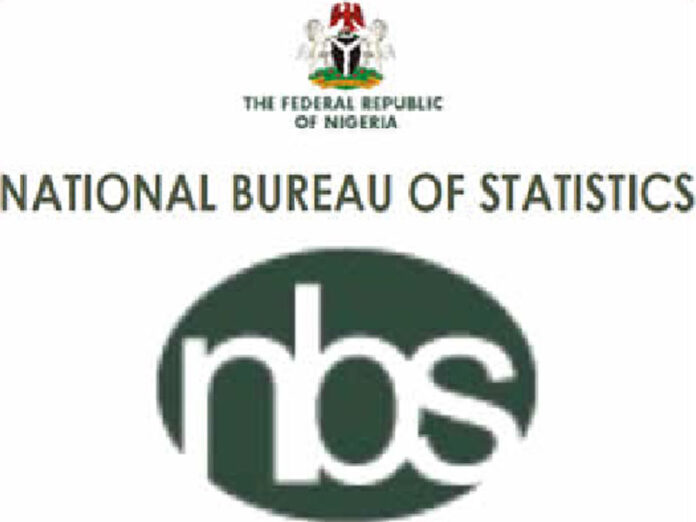.Average pump price hits N796 in Kebbi
.Retail price in North-west now N701.60
Chigozie Amadi Lagos
With zero local production of petrol in the 32 months spanning January 2021 to August 2023 and amid dwindling FX inflow, Nigeria imported 60.428 billion litres of petrol from Europe, THISDAY investigation has revealed.
However, data obtained from the National Bureau of Statistics (NBS) indicated that the country which imports most of its fuels from Belgium, The Netherlands, Norway and India, ranging between 1.4 billion litres and 2.5 billion litres per month, massively slashed import to 1 billion litres in August.
With an import circle of roughly 30 to 60 days, the fall in petrol import in August may not be unconnected with the removal of fuel subsidy on May 29 by President Bola Tinubu.
Nigeria is currently undergoing a massive foreign exchange crisis, because the import of petroleum products gulps about 30 per cent of total FX earnings.
But in November 2023, the Nigerian National Petroleum Company Limited (NNPC), said it would end the importation of refined petroleum products by December 2024 as all the country’s refineries would be operational by then.
Nigeria is therefore banking on the two refineries in Port Harcourt, the ones in Warri and Kaduna, which are currently at different stages of rehabilitation, as well as the Dangote refinery, where it has a 20 per cent stake, to boost local production this year.
According to NBS data, in 2021, the country imported approximately 22.415 billion litres, which then grew to 23.553 billion litres in 2022, and then brought in fuel amounting to 14.477 billion litres in the month of August 2023, to hit roughly 60.428 billion litres during the period under consideration.
Specifically, in the first half of 2023, the information showed that truck out stood at 11.48 billion litres, indicating a 5.83 per cent decrease when compared to 12.19 billion litres recorded in the first half of 2022.
In terms of imported products, 11.94 billion litres of the product were imported in the first half of 2023, relative to 11.56 billion litres in the corresponding period of 2022, showing an increase of 3.29 per cent.
In 2017, the federal government stated that fuel imports alone gulped 30 per cent of Nigeria’s FX earnings, with the Central Bank of Nigeria (CBN) re-echoing in 2022 that when petrochemicals are added, the amount will soar to 40 per cent.
Also, the figures from the latest NBS document, noted that average retail price paid by consumers for petrol in January 2024 was N668.30, indicating a 159.92 per cent increase when compared to the value recorded in January 2023, which was N257.12.
Likewise, comparing the average price value with the previous month, that is, December 2023, the average retail price decreased by 0.53 per cent from N671.86.
On state profile analysis, Kebbi State had the highest average retail price for the product at N796.67 while Zamfara and Taraba states were next, with N771.43 and N704.11, respectively.
But Kwara, Niger and Kogi States had the lowest average retail prices for petrol, at N614.90, 624.04 and 626.79 respectively.
On the zonal profile, the North-west had the highest average retail price of N701.60, while the North-central zone had the lowest price of N632.86.
Besides, 2.83 billion litres of diesel were imported in the first half of 2023, indicating an increase of 49.72 per cent compared to 1.89 billion litres in the same period of 2022
But 55.48 million litres were locally produced in the first half of 2023, higher, relative to 50.19 million litres reported in the corresponding period of 2022. This showed a growth rate of 10.54 per cent in the first half of 2023.
Nigeria produces mostly diesel, then kerosene from the four modular refineries owned by private individuals in the country. At least three of the modular refineries are not producing petrol because none of them has the capability.
The fourth, it was learnt though done with the mechanical completion of its own modular refinery, is yet to begin production.
Specifically, they do not have “catalytic reformers” used in the production of petrol because they are too expensive to buy, according to the Chairman of the Crude Oil Refiners Association of Nigeria (CORAN), Mr Momoh Oyarekhua.
For other products, in the first half of 2023, the NBS data showed that 26.07 million litres of kerosene were locally produced compared to 22.33 million litres in the first half of 2022, indicating a growth rate of 16.79 per cent over the period.
Besides, the average retail price per litre of kerosene showed that Nigerians in January 2024 paid N1,329.53, indicating a decline of 2.40 per cent compared to N1,362.27 recorded in December 2023. On a year-on-year basis, the average retail price per litre of the product rose by 15.27 per cent from N1,153.40 in January 2023.
On state profile analysis, the highest average price per litre in January 2024 was recorded in Kaduna with N1,833.33, followed by Benue with N1,766.67 and Niger with N1,703.70.
For diesel, the price paid by consumers increased by 39.11 per cent on a year-on-year basis from a lower cost of N828.82 per litre recorded in the corresponding month of last year to a higher cost of N1153.01 per litre in January 2024.
On a month-on-month basis, an increase of 2.34 per cent was recorded from N1126.69 in the preceding month of December 2023 to an average of N1153.01 in January 2024.
Looking at the variations in the prices in states, the top three states with the highest average price of the product in January 2024 included: Kebbi state (N1433.33), Kogi state (N1300.00) and Abuja (N1226.70).

























